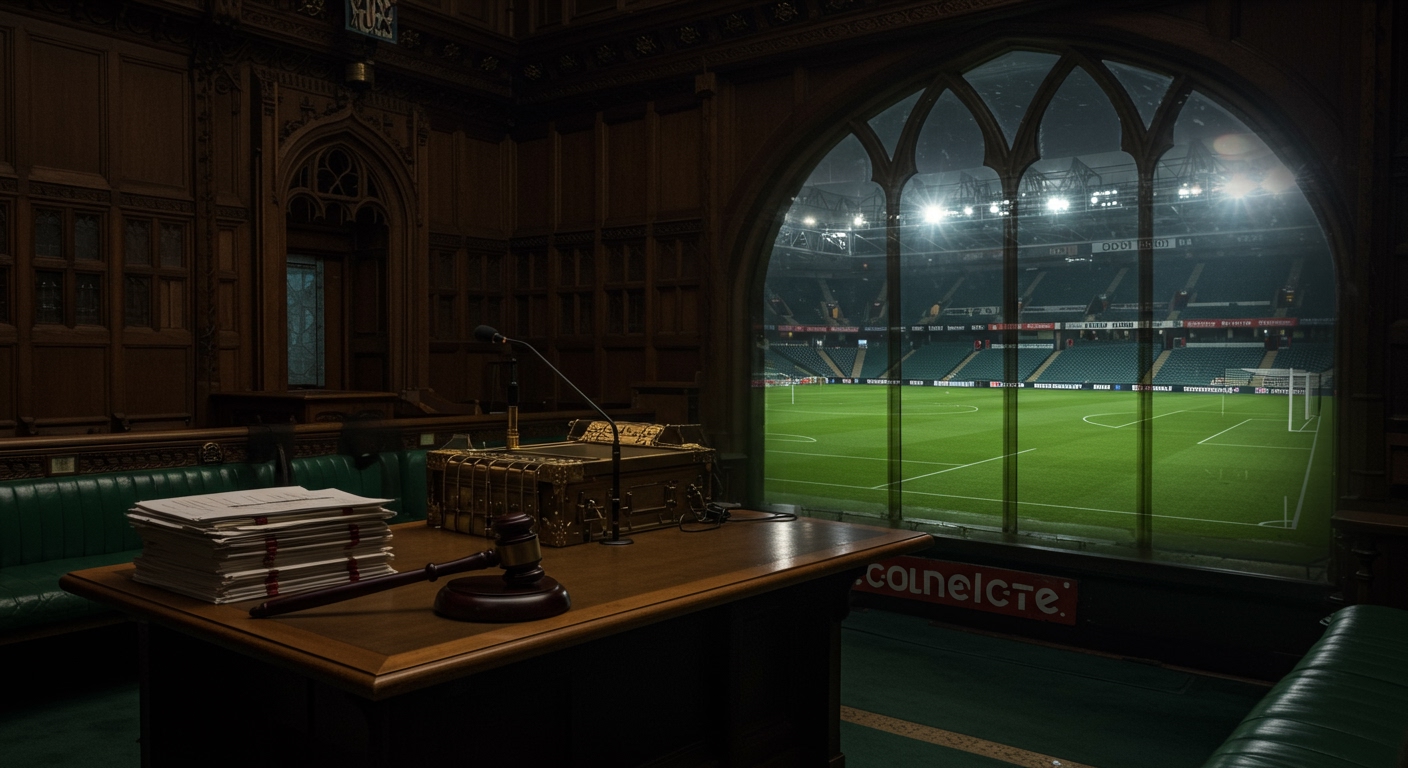London, UK – In a significant legislative development on July 8, 2025, the United Kingdom’s House of Commons decisively rejected a proposal aimed at implementing a comprehensive ban on all gambling-related advertising and sponsorship within English football.
The amendment, put forth by Liberal Democrat Members of Parliament during the passage of the landmark Football Governance Bill, sought to impose a strict duty upon English football clubs: “not to promote or engage in advertising and sponsorship related to gambling.” Had it been adopted, this measure would have effectively eliminated betting company sponsorship from all levels of the sport and would have tasked the forthcoming Independent Football Regulator with enforcing this prohibition.
Parliamentary Debate and Overwhelming Rejection
The vote took place as part of the final stages of the Football Governance Bill’s journey through the House of Commons. While the Bill itself garnered strong cross-party support, passing with a substantial majority of 415 votes in favour against just 98 opposed, the Liberal Democrat amendment faced overwhelming opposition.
Specific details on the voting numbers for the amendment were not immediately released, but its rejection was clear and decisive on July 8, 2025. The outcome signals a clear parliamentary position against implementing such an outright ban via this specific legislative vehicle at this time, despite ongoing public and political debate surrounding the prevalence of gambling promotion in sports.
The Proposed Amendment’s Aims
The amendment was championed by Liberal Democrat MPs Max Wilkinson and Lee Dillon. Their proposal was rooted in concerns about the potential links between pervasive gambling advertising in sport and problem gambling rates, particularly among vulnerable individuals and young people exposed to consistent messaging through their engagement with football.
The proposed duty on clubs was designed to create a legal framework that would have compelled teams, leagues, and associated bodies to sever ties with the gambling industry regarding promotional activities. This would have extended beyond pitch-side advertising and shirt sponsorships to potentially encompass digital presence, broadcast integrations, and other forms of commercial partnership that promote betting.
Furthermore, the inclusion of a mandate for the Independent Football Regulator underscored the amendment’s ambition to embed this ban within the core regulatory structure intended for the sport. The regulator, a key component of the Football Governance Bill, is designed to ensure the financial sustainability and good governance of English football clubs, and proponents of the ban argued that addressing gambling advertising was a crucial element of safeguarding the sport’s integrity and social impact.
Prior Legislative Attempts
The rejection on July 8, 2025, is not the first instance of a parliamentary push for such measures. Similar proposals have been brought forward previously by Liberal Democrat peers and MPs, highlighting a persistent effort within the party to tackle the issue through legislation.
Notably, Liberal Democrat Lord Addington had tabled analogous amendments in the House of Lords in March. Similarly, MP Max Wilkinson, one of the proponents of the July 8 Commons amendment, had also raised the issue and proposed similar measures during the Commons’ second reading of the Football Governance Bill in April. These prior attempts, like the latest one, failed to gain sufficient traction to be incorporated into the Bill’s progression.
Context of the Football Governance Bill
The Football Governance Bill itself represents a significant reform effort in English football, aiming to establish an independent body to oversee financial regulation, club ownership, and fan engagement. The debate surrounding gambling sponsorship occurred within this broader legislative push to reform the structure and sustainability of the sport.
The Bill’s successful passage through the House of Commons on July 8, 2025, with its strong majority, marks a key step towards establishing the Independent Regulator. However, the overwhelming rejection of the gambling advertising ban amendment means that, as it currently stands, the Bill does not grant the new regulator the explicit power or duty to eliminate gambling promotions from football.
Industry and Societal Debate
The debate over gambling sponsorship in football is multi-faceted, involving significant economic considerations. Gambling companies represent a substantial source of revenue for many football clubs, particularly those outside the Premier League, through sponsorship deals. Opponents of an outright ban often raise concerns about the financial impact on clubs and the potential loss of investment in the sport.
Conversely, proponents, including public health advocates and charities working with problem gamblers, argue that the visibility of gambling advertising normalises betting, exacerbates addiction issues, and creates a challenging environment for those trying to recover. They advocate for a ban as a necessary public health measure.
The Path Forward
With the Liberal Democrat amendment rejected during the Commons passage of the Football Governance Bill, the immediate legislative route for a comprehensive ban on gambling advertising and sponsorship in English football through this specific piece of legislation appears closed. While the Bill moves forward towards becoming law, the Independent Regulator will not possess the specific mandate envisioned by the amendment’s proponents regarding gambling promotion.
The outcome on July 8, 2025, underscores the complexity and differing views within Parliament on how best to balance the economic realities of professional football with the social concerns surrounding gambling harm. The debate itself, however, is likely to continue in other forums, potentially leading to future discussions or alternative regulatory approaches outside the scope of the current Football Governance Bill.





